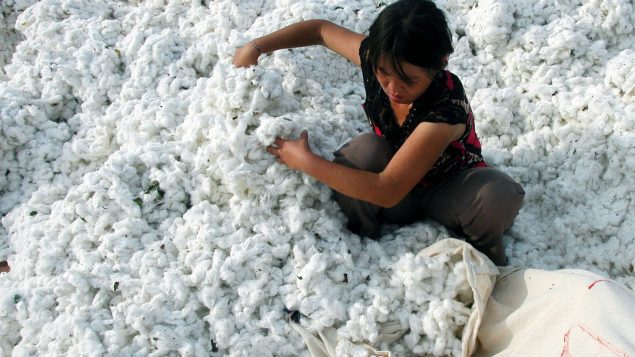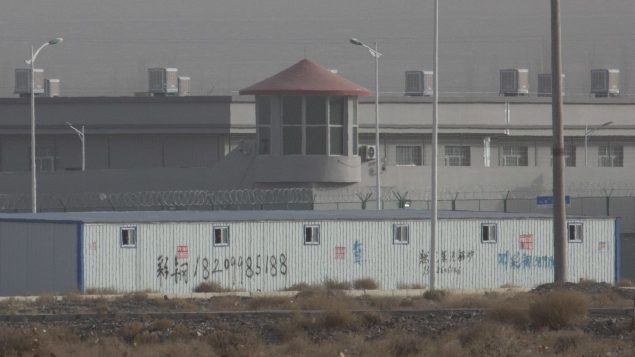The federal government announced new measures Tuesday aimed at ensuring that Canadian businesses are not complicit in Beijing’s human rights abuses against the Uighurs and other Muslim minorities in China’s northwestern Xinjiang province.
The suite of seven new measures announced by Ottawa in conjunction with the United Kingdom, includes a ban on imports of goods produced by forced labour and new requirements for Canadian companies doing business in China to ensure that their supply chains do not involve products produced by forced labour in Xinjiang.
“Canada is deeply concerned regarding the mass arbitrary detention and mistreatment of Uighurs and other ethnic minorities by Chinese authorities,” Foreign Affairs Minister François-Philippe Champagne said in a news release shortly before taking over the portfolio of the minister of Innovation, Science and Industry in Tuesday’s mini cabinet shuffle.
“Nobody should face mistreatment on the basis of their religion or ethnicity,” Champagne added.
International Trade Minister Mary Ng said the Trudeau government is committed to making sure that Canadian businesses are not unknowingly involved in any supply chains involving forced labour.
“We remain steadfast in our commitment to increasing supply chain transparency, promoting responsible business conduct, and ensuring that Canadian companies are upholding Canadian values, wherever they may operate,” Ng said.
Targeting forced labour in China’s cotton industry

A worker clears up newly picked cotton at a farm in Shihezi, northwest China’s Xinjiang Uygur Autonomous Region Sept. 3, 2007. (REUTERS/China Daily)
Charles Burton, a former Canadian diplomat and a respected China expert at the Macdonald-Laurier Institute, said the new regulations are aimed particularly at China’s cotton industry, which relies heavily on the use of forced labour in Xinjiang.
“It’s an enormous issue because so much cotton from China is produced in Xinjiang,” Burton said.
While the measures announced by Canada and the UK don’t go as far as the ones adopted by the U.S., Burton said they were a good first step for the Trudeau government.
“I think it’s an important development that Canada has acknowledged the issue,” Burton said. “I’d like to see more teeth put into it with legislation that would sanction Canadian companies that violate those provisions.”
Xinjiang, home to about 12 million ethnic Uighurs and other Muslim minorities such as Kazakhs and Kyrgyz, produces 85 per cent of China’s cotton and 20 per cent of the global supply, which is used by fashion brands worldwide.
‘Prison-like conditions’

FILE – In this Monday, Dec. 3, 2018, file photo, a guard tower and barbed wire fences are seen around a facility in the Kunshan Industrial Park in Artux in western China’s Xinjiang region. The U.S. Customd snd Border Protection said it will block imports from a major Chinese producer of cotton goods for its suspected use of workers detained as part of a crackdown on ethnic minorities in China’s northwest. (AP Photo/Ng Han Guan, File)
Last month, the Washington-based Center for Global Policy said China is forcing hundreds of thousands of ethnic Uighurs and other minorities to pick cotton by hand and called on the U.S. to ban all cotton imports from the Xinjiang region.
“This is really about people who are working under prison-like conditions in agricultural production,” Burton said.
“They have over a million Uighurs in these ‘re-education camps’ and then when they leave these camps, they are subjected to forced labour either in the Uighur Autonomous Region or sent to the interior.”
In addition to moral considerations, trade in goods produced by forced labour is also banned under World Trade Organizations (WTO) and under the Canada-U.S.-Mexico Agreement (CUSMA) because it creates unfair competition, Burton said.
It’s unclear whether China will choose to retaliate against Canada over these new measures, Burton said.
“My own view is that it’s likely that if we stand up to China and speak the truth, they are more likely to respect Canada as a country with a backbone,” Burton said.
China has denied that it uses forced labour in Xinjiang, arguing instead that the government helps ethnic minorities “secure stable employment.” Chinese officials said nearly 3 million people had been lifted out of poverty in the region thanks to government programs.
With files from Reuters







For reasons beyond our control, and for an undetermined period of time, our comment section is now closed. However, our social networks remain open to your contributions.